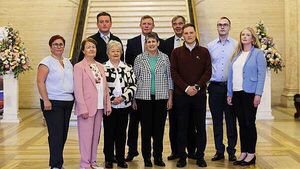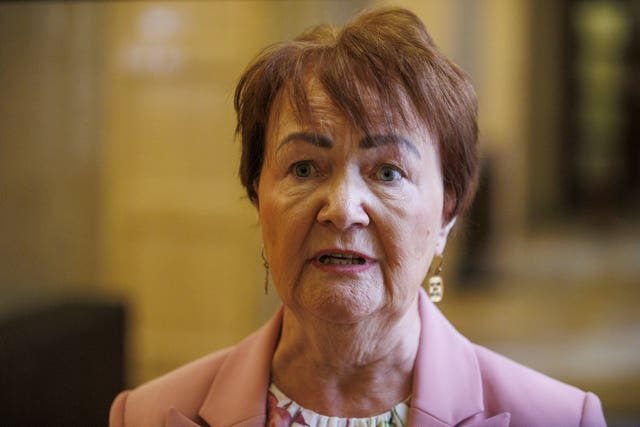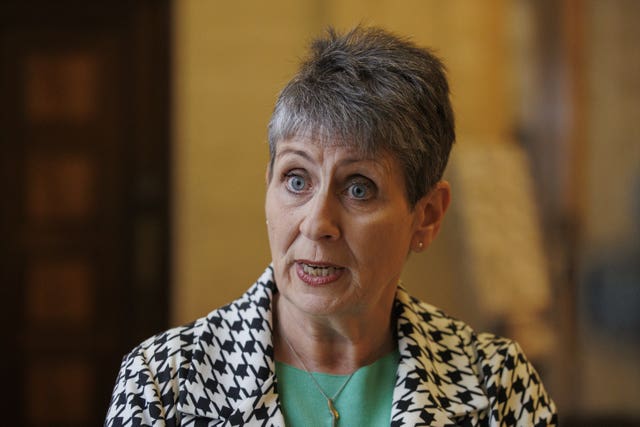‘Heartbroken’ family call for access to specialist cancer treatment

By Nicole McBride, PA
A “heartbroken” family have called for access to specialist cancer treatments in Northern Ireland after the death of a much-loved mother-of-three.
Catherine Sherry, 42, from Armagh, was receiving CAR-T cell therapy at King’s College Hospital in London for lymphoma after being told the treatment was unavailable in Northern Ireland.
Despite beating the disease, the family said she was unable to fight the last infection because of extensive travel to receive treatment in London, and she died in May.
Ms Sherry was described by her family as a “beautiful wife and mother”.

Her aunt Anne Garvey said: “She was the light of our life and the apple of our eye. Everybody loved her.
“She was the eldest grandchild, and she loved music. She also encouraged her three boys to get involved in music.
“Catherine died in May when she was recovering from having this treatment alone.
“We don’t want other families to have to face this.”
She added: “At the moment, patients have to travel to England or Scotland to have that treatment, face separation from their families, and face the problems of travelling on their health including the possibility of blood clots.”
Representatives of the family, clinicians and advocacy groups met at Stormont on Monday to discuss if CAR-T cell therapy in Northern Ireland could be accessed in order to avoid family separation and complications.
According to Northern Ireland's Department of Health, local access to these services is progressing as part of development plans to enhance and expand the existing specialist haematology services currently available at the Belfast Trust.
A Northern Ireland-based CAR-T cell therapy service has been estimated to be established by 2030/31.
Ms Garvey said: “We know this will happen now but we need faster implementation on this service.
“We are six years behind what is happening in the rest of the UK and Ireland and it’s time that we in Northern Ireland had access to the same type of treatment. We deserve equality.
“We deserve to be served here at home. What’s happening at the moment is not good enough. Deliver the service here as quickly as you can, and in the interim, let us have access to the treatment of Dublin.”
Alison Coyle also took part in the roundtable discussion at Stormont on Monday.
Her husband has undergone CAR-T cell treatment in England after being diagnosed with diffused large B cell lymphoma.
She said: “As a carer for my husband, I found it very, very stressful, the travelling back and forth.

“I was there with him for six weeks while he was in hospital and I found it very, very lonely. Whereas, if it was here, or if it was in Dublin, the family could have relieved me in some way.”
A spokesperson for the NI Department of Health said: “The minister (Mike Nesbitt) was very saddened to hear of the death of Mrs Sherry earlier this year, and extends his sincere condolences to her family and friends.
“Chimeric Antigen Receptor T-cell (CAR-T) is a highly complex, intensive treatment that utilises specialist gene therapy for the treatment of some specific cancers.
“The treatment is developed for each individual patient and enables their own immune system to attack cancer cells. It is used when more conventional cancer treatments are no longer working.
“Access to this treatment in the UK requires referral from a clinician, which is then considered by a national expert panel who make the decision on whether a patient is suitable to undergo this treatment.
“Given the very specialist nature of this treatment, it can only be accessed through a number of designated specialist centres in the NHS.
“Patients from Northern Ireland are referred to these centres following confirmation of their eligibility by an expert panel.”
The spokesperson added: “Proposals to establish local delivery of these services are also progressing in Northern Ireland as part of development plans to enhance and expand the existing specialist haematology services currently available at the Belfast Trust.
“The Belfast Trust has submitted a business case to the department for a new regional haematology ward, which will provide a range of specialist facilities that will support the delivery of a Northern Ireland- based CAR-T cell therapy service by 2030/31.
“Department of Health NI officials continue to work closely with colleagues in the Republic of Ireland to help develop cross-border cancer services.
“Unfortunately, due to service capacity issues in the Republic of Ireland, it is not currently possible to refer those patients eligible for CAR-T cell therapy to these specialist cancer services at this time.”





